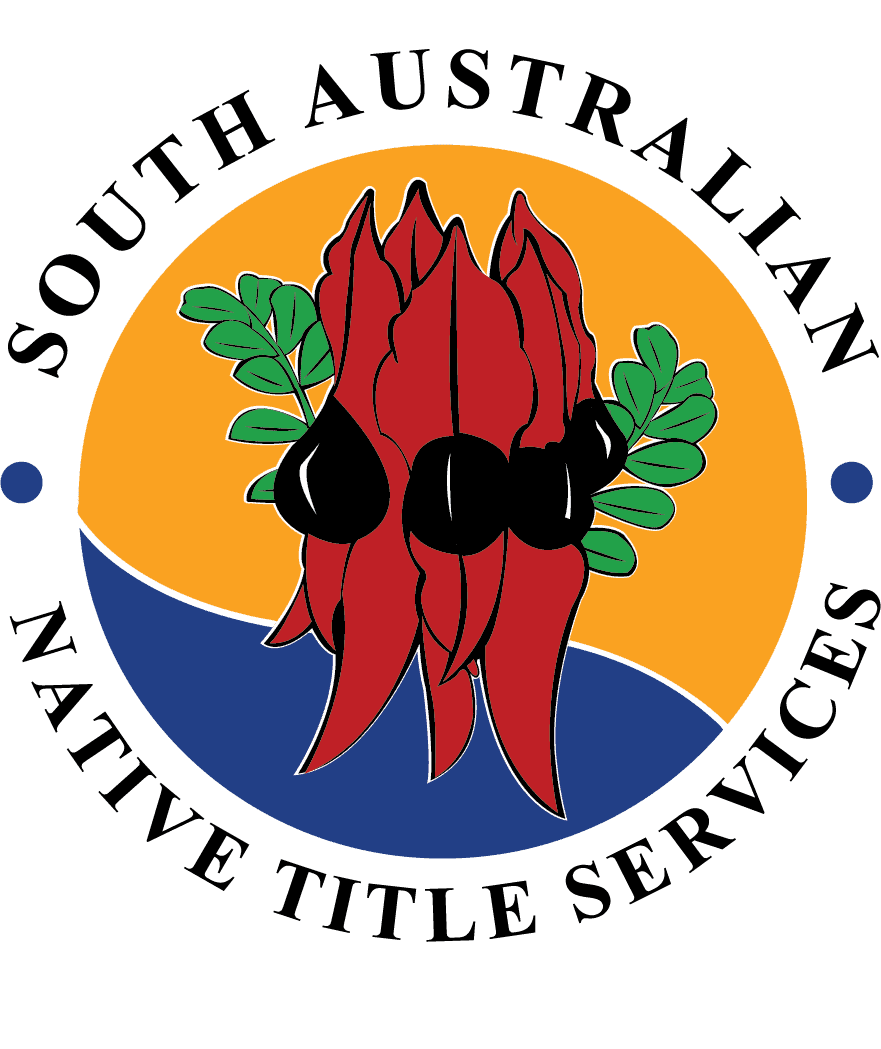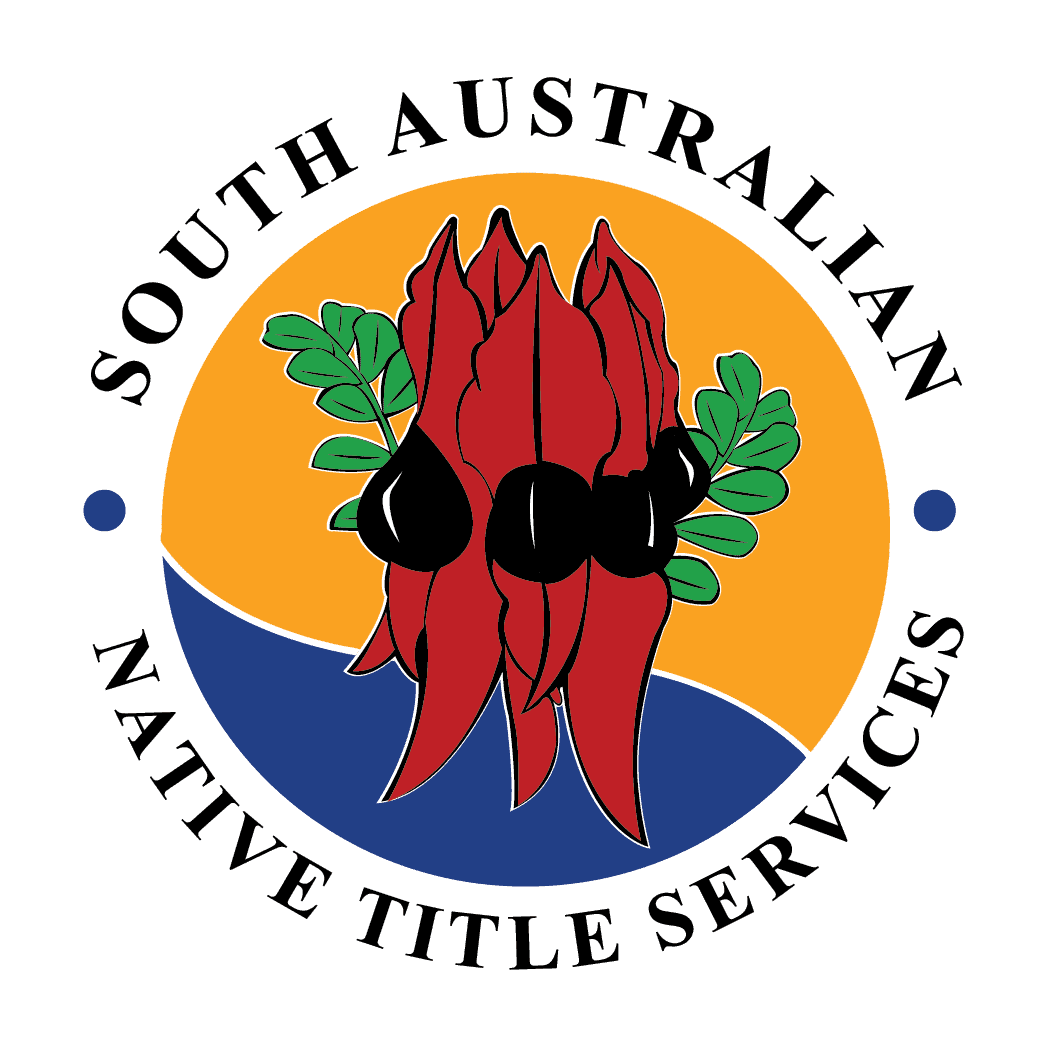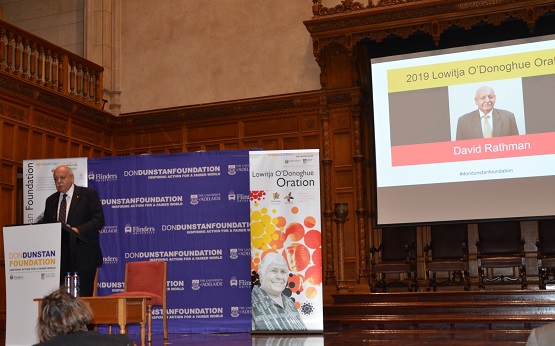A prominent South Australian leader has called for support for a Centre for Aboriginal Culture and Arts, saying that Aboriginal people must have a venue for truth telling about their displacement to enable South Australians to properly understand our shared history.
The comments were made by former public service executive and current Chair of the SA Museum’s Aboriginal Advisory Committee David Rathman on delivering the 13th Annual Lowitja O’Donoghue Oration with the topic of ‘Storytelling: Culture, Truth Telling and the Arts’.

Mr Rathman argued strongly for the State Government’s proposed Centre for Aboriginal Culture and Arts to be built at the old Royal Adelaide Hospital site.
“It will be a place devoted to Australian Aboriginal Cultures, truth telling, art, history, science and contemporary life.
“A living breathing cultural experience, it must recognise and celebrate the longest continuous human culture on the planet, provide a dynamic cultural and economic hub and be a beacon of reconciliation for generations to come” he said.
Mr Rathman spoke at length about the history of South Australia and the treatment of Aboriginal cultures and governance in our state’s past.
“A history based on exclusion, a set of demeaning government practices put in place to create a negative impression of our people. The system considered Aboriginal people as an inconvenience to the business interests of the coloniser” Mr Rathman said.
Mr Rathman said that there was clear evidence that Aboriginal people had social arrangements and clear governance at settlement.
“The Lutheran Missionary Teichelmann observed the Kaurna peoples’ community arrangement, ‘Each tribe has a certain district of the country as property received by their forefathers, the boundaries of which are fixed’.
However, that governance system and social structures were quickly undermined he explained.
“A lack of sustained Government commitment and the continuing loss of arrangements that enabled Aboriginal people to continue the system of Aboriginal governance were ignored and the arrogance allowed the English colonials to treat our people as irrelevant.
“Aboriginal peoples’ attempts to build a base of traditional influence to protect interests of the people in dealing with authorities and government was thwarted by those in power. This attitude was put in place from the very beginning when the South Australia Act was assented to in England” Mr Rathman explained.
That Act played a strong part in the dispossession of the state’s Aboriginal people, Mr Rathman said.
“The South Australia Act of 1843, ‘an Act to empower His Majesty to erect South Australia into a British Province or Provinces, and to provide for the Colonisation and Government therefore’ proclaimed the Lands of South Australia to be waste and unoccupied lands, fit for the purpose of colonisation.“The first Colonisation Commission report by the settlement authorities was humiliating for Aboriginal people” said Mr Rathman.
“It introduced what could be described as a form of slavery. The report recommended the provision of Aboriginal ‘asylums’ which would be ‘weather-proof sheds’. In the asylum Aboriginal people could receive food and clothing in exchange for labour” he said.
There were some concessions to Aboriginal interests in early documents Mr Rathman said.
“In that same report the colonisers promised the ceding, for the use of Aboriginal people, 16 acres of every 80-acre allotment of land sold.
“It didn’t happen. I once raised the intention in the report with a Premier of South Australia who said if Aboriginal people called on and proved its right to recover the debt it would send the State broke.”
Mr Rathman spoke about Aboriginal people who had over the years worked towards a better future, including Lowitja O’Donoghue herself, who “stood up against ignorance and racism while remaining a voice for reason and sensible co-operative progress”.
“She was a woman who faced being apart from her family but her inner strength allowed her to stare down barrier makers” he said.Another inspiring individual was the late Elsie Jackson, who through perseverance and with the support of others against the existing system became the first Aboriginal Teacher Aide to be employed in a state school in South Australia.
“The commitment to Aboriginal people comes from groups or the action of individuals who have taken the time to build a relationship with the community and individual Aboriginal people”
Mr Rathman said.Looking to the future, Mr Rathman said that there remains opportunities to make changes.
“I am optimistic if the South Australian political, business and general population convert intent into to action based on mutual respect and partnership we can move to a positive space where Aboriginal peoples’ perspective is respected and valued as a partner in building a strong healthy Aboriginal community of people.
“The wider Australian people must build a relationship with Aboriginal people and remove the colonised mindset to reform their thinking and close the gap amongst Australians about Aboriginal people to create a future based on transparency and a modern place for Aboriginal governance.“An Aboriginal presence on lot 14 will shine a light on the past, demonstrate how we can work together now and forge a path to a future which reflects the true story of country.
“My work is not done, our work is not done” Mr Rathman concluded.Full transcript of the 13th Annual Lowitja O’Donoghue Oration is available at the Don Dunstan website.
By Lucy Kingston
SANTS acknowledges that the land on which our office is based is the traditional lands for the Kaurna people and we respect their spiritual and cultural relationship with their country.



 Protected by Patchstack
Protected by Patchstack